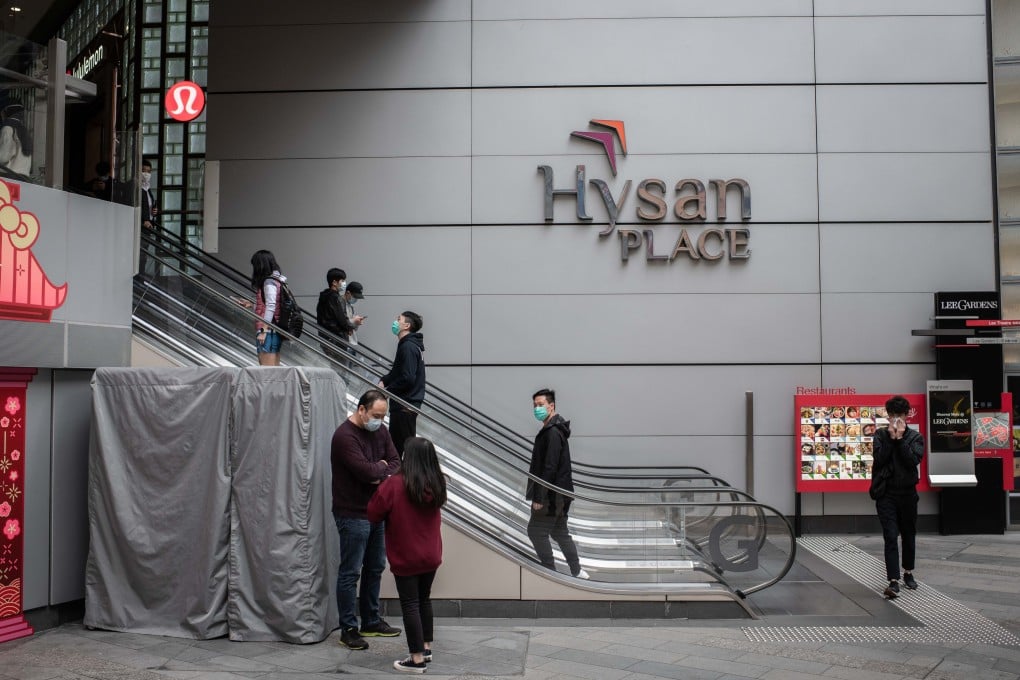Hong Kong’s Hysan, Causeway Bay’s largest landlord, posts lower first-half profit as tough Covid-19 rules bite
- Hysan’s underlying profit in the first half slipped 0.7 per cent to US$149 million, while turnover declined 3.1 per cent to US$225.5 million
- The outlook remains uncertain due to global economic woes, says Hysan’s Irene Lee, adding that Hong Kong needs to ease travel rules to maintain hub status

Hysan’s shares fell 0.62 per cent.
“The fifth wave of Covid-19 during the first months of 2022 in Hong Kong interrupted the economic recovery we saw during 2021,” said Lee Irene Yun-lien, Hysan’s chairwoman. “The restrictive measures imposed during the first quarter of 2022 not only reduced economic activity but also negatively affected consumer and business sentiment.”

The fifth wave of the pandemic triggered the city’s toughest social distancing measures since the outbreak began in early 2020. Restaurants, gyms, beauty salons and entertainment venues were either ordered to totally shut down or severely limit their operations. With most Hong Kong employees working from home for months, restaurants and retailers saw substantial reduction in sales.
Starting in the second quarter, however, Lee said the group “began to see encouraging signs of recovery due to the moderation of the pandemic and gradual relaxation of thegovernment’s quarantine measures”, citing the city’s 4.7 per cent combined growth in retail sales in April and May and the 0.4 percentage point decline in the unemployment rate to 4.7 per cent in April to June.
